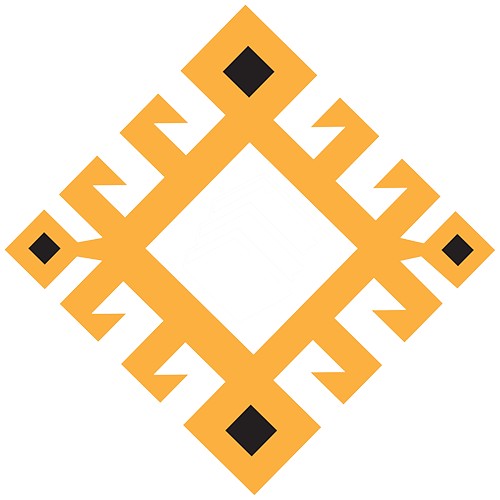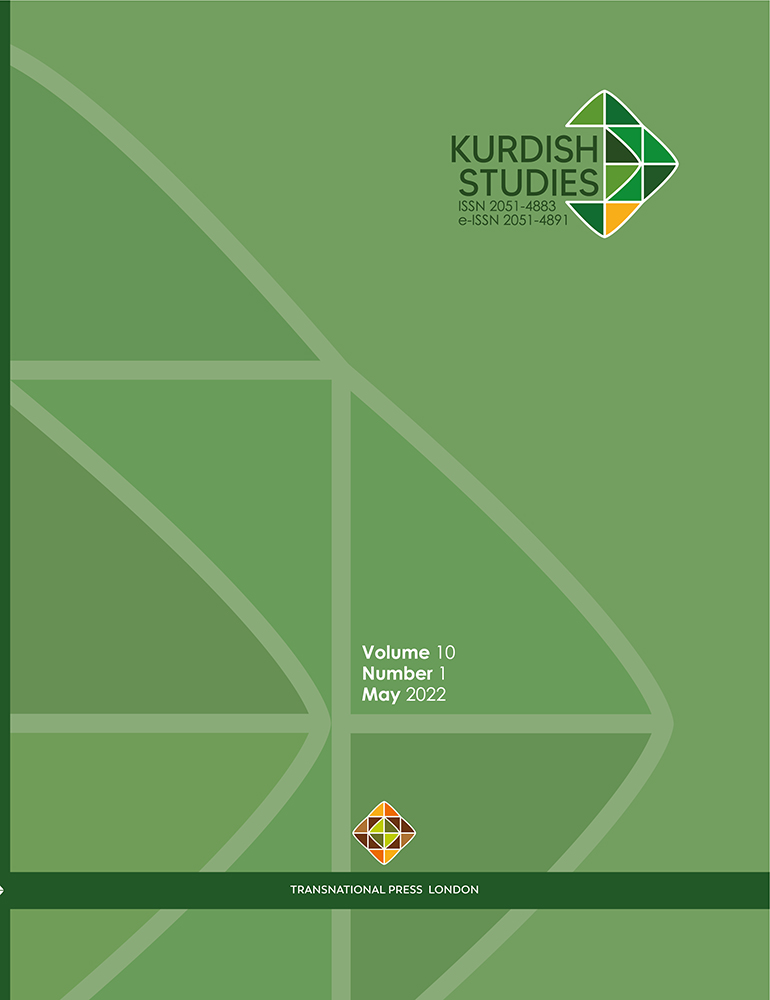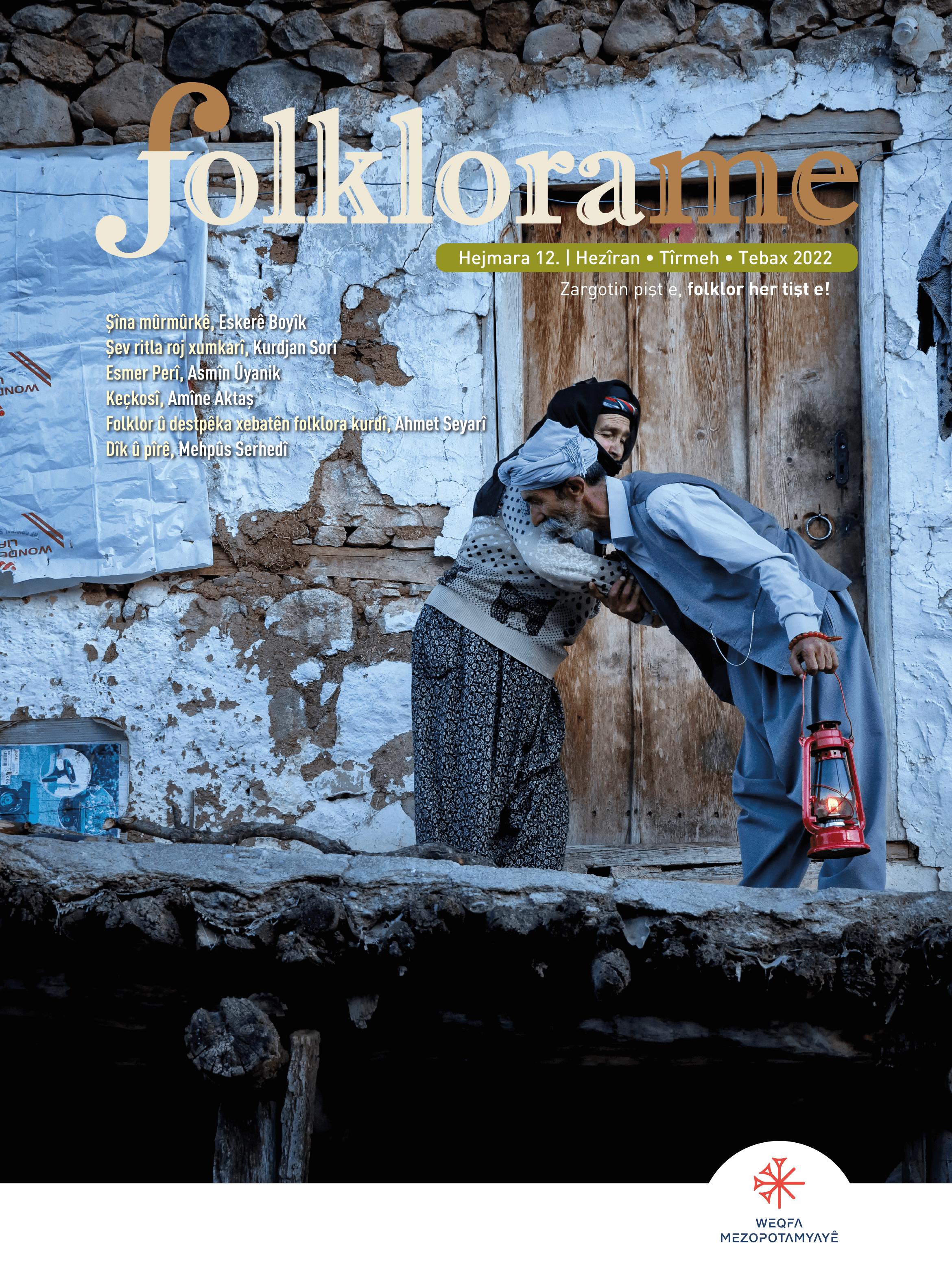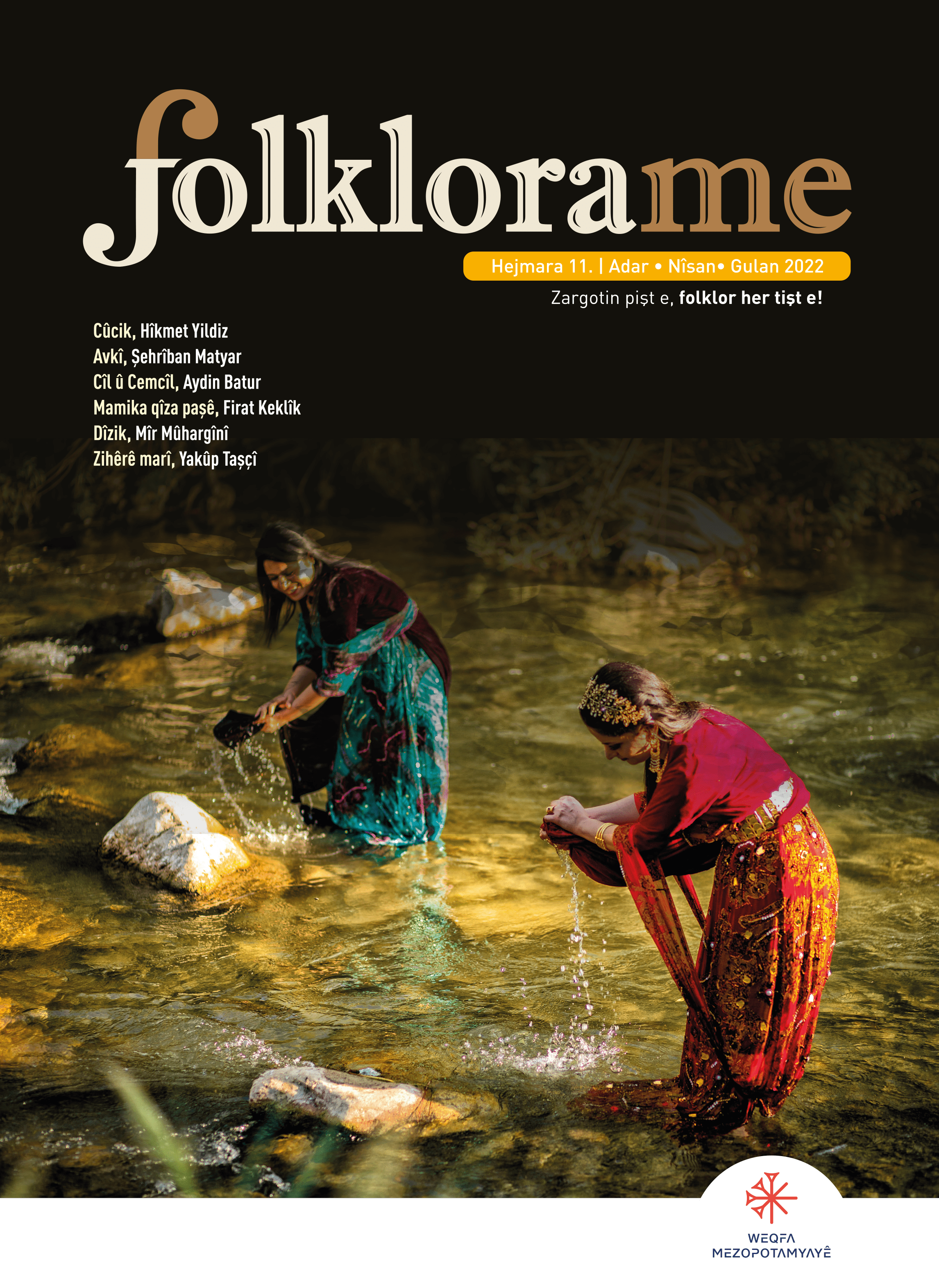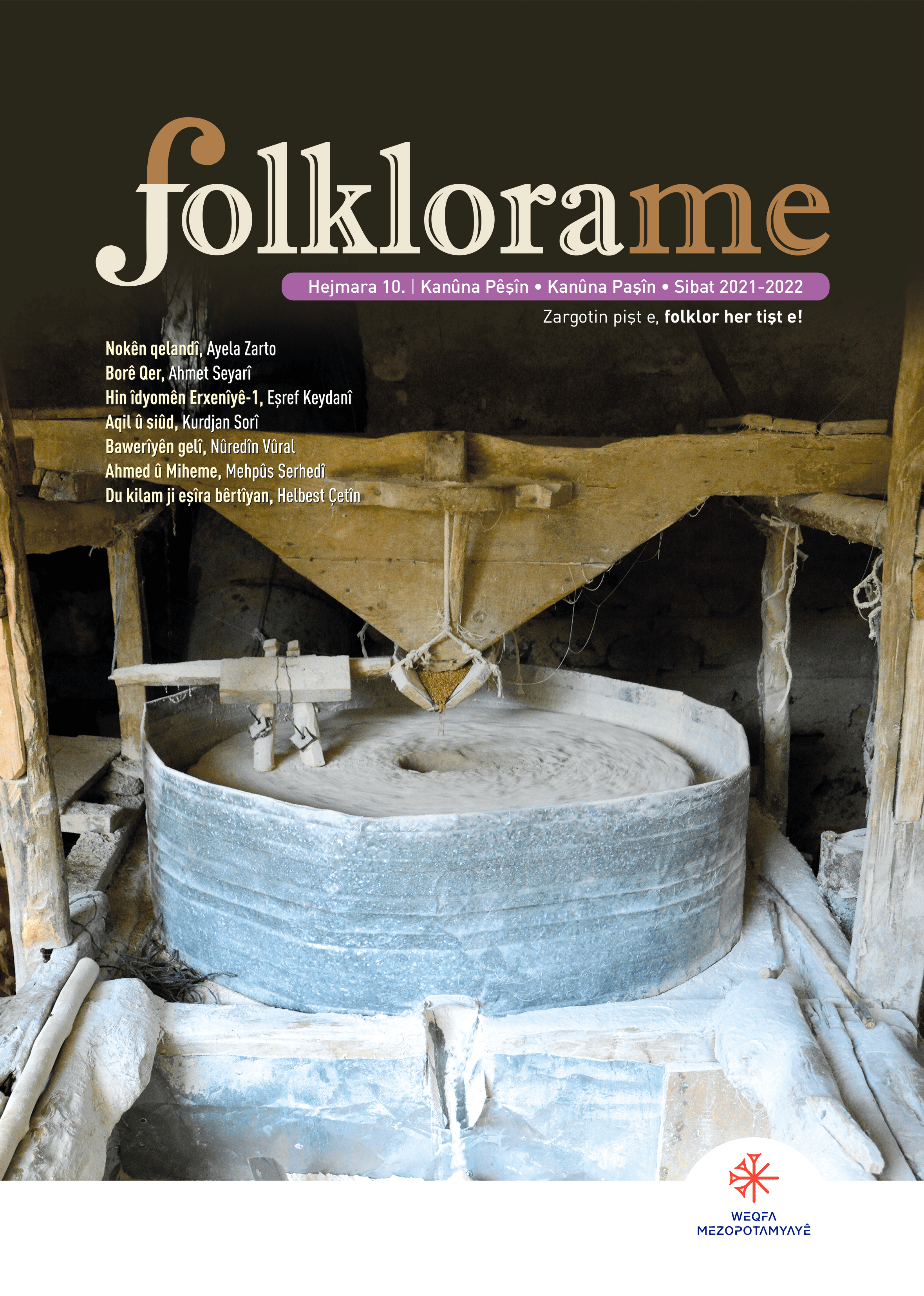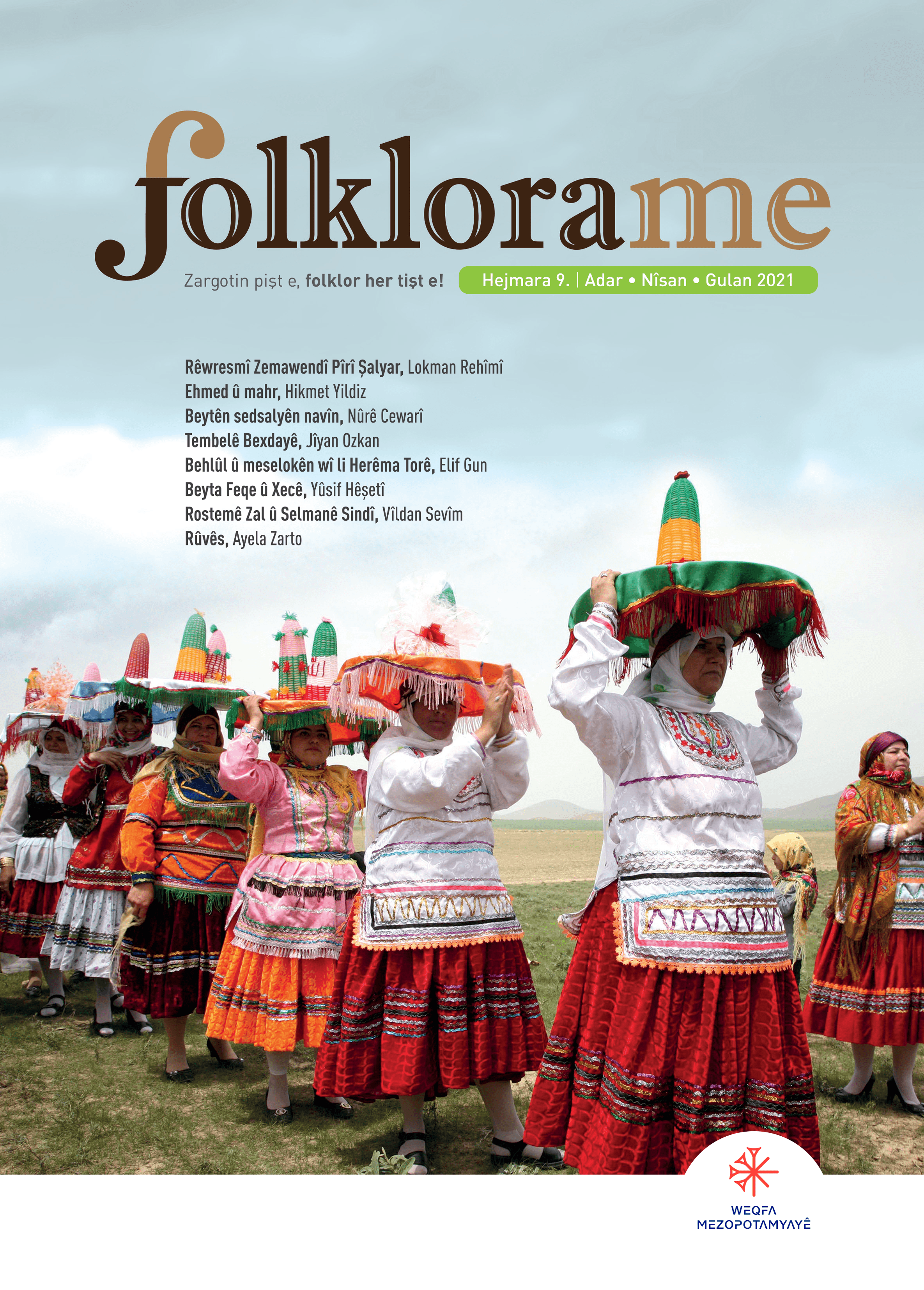As this journal enters its tenth year, some major changes are taking place in the editorial team. Welat Zeydanlıoğlu, who had first founded the Kurdish Studies Network and moderated its helpful mailing list and then took the initiative to establish this journal in collaboration with our publisher Ibrahim Sirkeci, hasannounced that he wishes to retire from the position of managing editor. For the past nine years,Welat has given much of his time and energy to the journal, and it is understandable that he wishes to move on now to something else, but we shall certainly miss him. It has been largely due to Welat’s efforts (and his confidence that he could persuade scholars to publish their work in this journal) that Kurdish Studieshas managed to stick to a strict schedule of publication, with new issues coming out each spring and autumn, as well as maintaining standards of academic quality. An interview with Welat in this issue (by Marlene Schäfers) documents the role the network and journal have played in the development of Kurdish studies as a coherent field of studies and in stimulating communication between scholars of many different backgrounds.
Another founding editor, Joost Jongerden, has also had to retire from active participation due to other obligations, as had one of the earliest collaborators on the network and journal, Ethem Çoban. Ethem had been in charge of the online Kurdish studies bibliography and the book reviews section of the journal. We shall remember their crucial contributions to the editorial work in the journal’s first years. Meanwhile, the editorial team has over the past years expanded to include young scholars working in a wide range of disciplines, who take an active part in the editorial process, corresponding with authors and peer reviewers in their area of expertise, deliberating on editorial policies and preparing future thematic issues. Starting with the current issue, Marlene Schäfers steps in as the managing editor and Sacha Alsancaklı as the book review editor. (Sacha will also be updating the online bibliography on the KSN website.)a
The past decade has seen an unprecedented flourishing of scholarly activity in our field, resulting in numerous PhD dissertations, published books, articles in respected academic journals, conferences, seminars and specialised courses. Several established publishing houses started new book series dedicated to Kurdish studies, and various new journals and magazines publish research-based content in English, Kurdish, Turkish and other languages. Kurdish Studiesprides itself in now being the leading English-language journal in our field, with the longest regular publication record, but we welcome the diversification of periodical publishing.
We intend our journal to continue representing the diverse approaches and disciplines in Kurdish studies, with writing byestablished as well as young emerging scholars, and we are especially eager to involve more scholars working in Kurdistan itself. We wish to keep an open eye for new developments in the field, new conceptual and theoretical debates, and subjects that havereceived insufficient attention before. We welcome contributions from various disciplines in the social sciences and humanities and remain open to suggestions for special issues on new themes or understudied aspects of Kurdish history, culture and society.
One major problem most of us face is that of access to the growing literature in our field. Most of the books published are too expensive for individual researchers to buy, and most journal articles, including those in Kurdish Studies, are behind a pay wall. Scholars who do not have access to a major university library are at a significant disadvantage. It is equally frustrating for authors to see that the fruit of their labours does not reach a large proportion of their potential readers due to the market forces in control of academic publishing. We are strongly in favour of open access publishing, and but Kurdish Studies is an independent journal, and the production costs do not allow us to make all our content freely available. Many universities in the European Union, however, offer financial support to affiliated scholars that allows them to make their articles open access, and we strongly encourage authors to explore that possibility. We should also wish the journal to become more widely available in Kurdistan and its neighbouring countries, forinstance in the form of campus licences for local universities. The costs will be quite modest, but we shall need disinterested sponsors to make this possible. If readers have concrete suggestions of how to make this happen we shall be most grateful.
The present issue illustrates the range of our interests. The somewhat technical article by Rdhwan Shareef Salih on some aspects of production-sharing contracts contains rich information about oil and gas production in the Kurdistan Region of Iraq and the role of international companies in production and sale. This has gained a sudden political importance with Russia’s invasion of Ukraine and the calls for the boycott of all Russian oil and gas, which has raised the profile of the KRG as a potential alternative supplier. Ceren Şengül writes on phenomenon that has received little attention in sociolinguistics, focusing on how passive exposure to spoken Kurdish has contributed to the construction of Kurdish identity. Anu Leinonen takes a look at the more proactive practices of Kurdish language activism in Turkey in the past decades and discusses the wide range of efforts to teach Kurdish at various levels of education. These two articles complement one another in interesting ways. The interview with Welat Zeydanlıoğlu, mentioned above, is not just a record of the history of this journal but a contribution to the sociology of knowledge, with its reflections on how, by whom and for whom knowledge of the Kurds is produced. As usual, the abstracts of all articles are translated in the three major Kurdish dialects. We thank Kubra Sağır, Aram Rafaat and Mahir Doğan for their translations into Kurmanji, Sorani and Zazaki, respectively.
